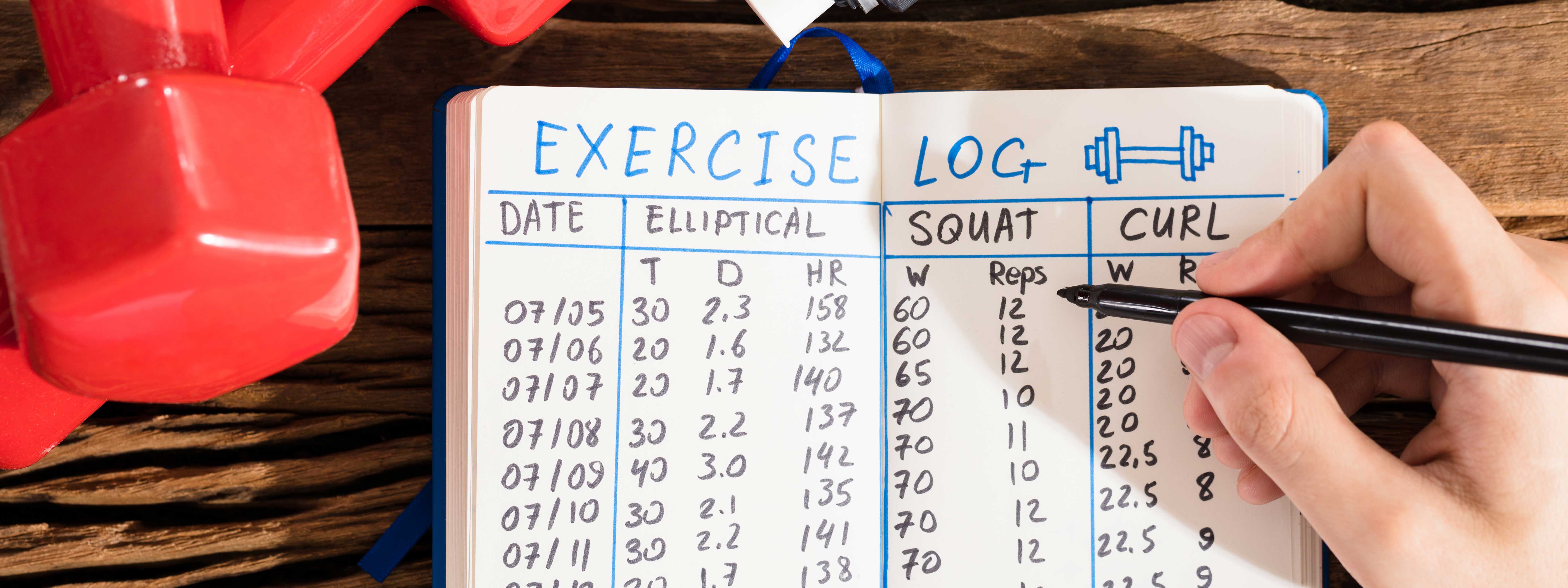8 REASONS WHY YOU NEED TO KEEP A WORKOUT LOG
Posted: 21/12/2020 by Steven Lokwan Ph.D.

For some, working out is as natural as breathing, whilst for others, it only just narrowly beats cleaning a cruddy toilet! In either case, keeping a workout log may seem like ‘needless’ admin that depending on your point of view either gets in the way of a blissful experience or makes an already laborious chore even worst.
However, this couldn’t be further from the truth! Irrespective of whether you passionately look forward to your next workout or dread it with a passion, keeping a workout log can help you see the bigger picture – namely the progress you’re making towards your goals – by putting the nuances of each training session into perspective.
The log you keep doesn’t need to be anything fancy, and you certainly don’t need to record every minutia. Some simply opt for a small notebook and pencil, whilst others prefer something a little more structured to record more detail such as the Anterides workout logs that accompany our Workouts. Nevertheless, whichever option you chose, keeping a workout log will make things just that little bit easier on your journey to achieving your goals; but if you still need more convincing here are 8 reasons that will change your mind:
1. YOU CAN TRACK PROGRESS
Perhaps the most important reason to keep a workout log is to track progress. Recording what you achieve in one session allows you to plan what you should aim for in the next. In other words, it transforms progression from something that is taken on a whim as the mood takes you to something that is based on empirical data that is planned with foresight. In so doing, you also decrease the chances of reaching the dreaded plateau and increase the chances of achieving your goal.
2. YOU BECOME ACCOUNTABLE
The act of recording your achievements inherently creates accountability. By writing down what you actually achieve against what you intended to achieve reinforces specific and desired behavior. This in turn encourages routine and consistency over time, which are key factors to success, especially when starting a new program.
3. YOU GET A SENSE OF ACHIEVEMENT
By recording your efforts in a workout log you automatically create a subconscious psychological construct that promotes a sense of accomplishment through task completion. Furthermore, the positive effects on self-esteem that ensue become inextricably linked to the beneficial effects of your workouts.
4. YOU CAN MORE READILY IDENTIFY YOUR WEAKNESSES
Log keeping allows for easy comparison between workouts to identify patterns in your training. Some sessions may feel easier or harder than others and by referring to your logs you may find a reason for this. Furthermore, if you record more than just your workout achievements you may also identify other factors that affect your performance such as the amount you sleep, your nutrition, and hydration levels.
5. YOU PROMOTE PROGRESSION
We often don’t realize how quickly time flies by; before we know it several months can pass by using exactly the same exercise parameters. However, we all know a certain degree of change is required, ideally every 6-8 weeks, to ensure your body is sufficiently challenged to move ever closer to your goal. In this respect, your log becomes a diary to remind you to vary your workouts.
6. YOU PROMOTE RECOVERY
Similar to how a workout log can be your diary to remind you to shake things up from time to time, it can also become your diary to remind you to take sufficient time off from training to provide your body with enough time to recover. Recovery is a frequently overlooked part of training, but without it you are doomed to fail. The amount of recovery you need depends on many factors, but for most, at least one full day of rest should be penciled in per week.
7. YOU TAKE THE GUESSWORK OUT
Whilst you may think you’ll remember everything about your workouts, over time they all will blur into one. How many reps did you curl before failure last week – was it 25 or 28? How far did you run in your last training session – was it 10.4km or 11.8km? Recording your achievements in a workout log means you don’t have to commit so much to memory, and in so doing remove the guesswork in your training.
8. YOU WILL RECOGNIZE MILESTONES
Training is not an exact science that occurs over relatively long periods. As a result, you may find that your actual goal starts to drift over time. Therefore, a workout log provides a tangible record of what you originally set out to achieve thereby making it easier to recognize when you’re at your journey’s end. Furthermore, the records you keep will help you identify new goals for the next phase of your training journey.





